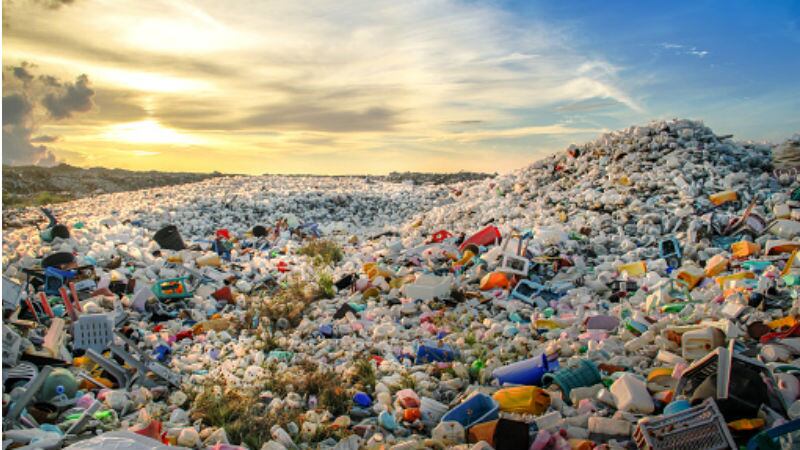The recent Greenpeace report was based on brand audits on plastic waste items across the globe, saw Coca-Cola take the top spot with over 11,700 pieces of plastic waste identified in 37 countries. This was followed by Nestle with over 4,700 pieces in 31 countries, PepsiCo (3,362 in 28 countries), Mondelez (1,083 in 23 countries) and Unilever (3,328 in 21 countries).
This is also the second year in a row that Coca-Cola was ranked first, whereas all the other firms had also ranked within the top 10 list last year.
Responding to queries from FoodNavigator-Asia, Coca-Cola Asia Pacific Leads Communications, Sustainability and Public Affairs Matt Echols said that both partnership and collection aspects are important to handling sustainability issues such as these.
“No single company, organisation or government can do this alone because the issues and solutions are complex and global. In 2019, we’ve been actively involved in launching industry-led collection and recycling models in APAC learning from successful case studies in other parts of the world such as Mexico and South Africa,” he said.
“It all starts with ensuring we are putting recyclable packing in the marketplace. In ASEAN, for example, 99% of our portfolio is recyclable.
“The beverage sector needs to continue offering consumers a choice of recyclable packaging formats and needs to make it easy and convenient for consumers to be part of a circular economy. Moving toward a circular economy will ultimately reduce the amount of virgin materials needed in this sector.
“[We] also need to consider as a sector the overall carbon footprint of the packaging formats that we offer. A PET bottle actually has a significantly lower carbon footprint than the equivalent amount of aluminium and glass, [and] a recycled PET bottle has even less. So, for the beverage sector, it’s important that we work to get to a closed-loop circular economy especially for high-value, 100% recyclable plastics like PET.”
He cited various Coca-Cola initiatives, particularly in the Asia Pacific region, which focused on the use of recycled plastic packaging and were implemented in the past year such as a 100% recycled plastic bottle launch for its Viva water brand in the Philippines in June this year.
“In addition, we have also just launched a report together with [packaging and food waste strategy experts] GA Circular, which delivers a first-of-its-kind analysis of collection-for-recycling rates for PET plastic in key ASEAN cities,” added Echols.
“It frames up a circular economy roadmap for post-consumer PET plastic packaging specifically tailored for the region, with a concrete set of recommendations geared towards interventions with the highest impact.”
PepsiCo also reaffirmed its commitment to recycling and alternative packaging in reponse to FoodNavigator-Asia’s queries, and also said that this was a ‘complex challenge’.
“We’re committed to reducing 35% of virgin plastic content across our beverage portfolio and making all our packaging 100% recyclable, compostable or biodegradable by 2025,” a PepsiCo spokeswoman told us.
“Changing the way society makes, uses, and disposes of packaging is a complex challenge and we’re playing our part. We want to help build a system where plastic packaging never becomes waste.”
The same companies that took the Top Three spots globally were also the top three rankers in the Asian region. Marine plastic pollution is also a major issue in this region, with China, Indonesia, the Philippines, Vietnam, and Sri Lanka named the largest sources for this.
Moving away from ‘false solutions’
Many of the solutions suggested by multinational F&B companies in the past have been met with derision by Greenpeace, with an entire report dedicated to discussing how suggesting paper or ‘supposedly biodegradeable bioplastics’ as alternatives are basically what they term ‘false solutions’.
“Recent commitments by corporations like Coca-Cola, Nestlé, and PepsiCo to address the crisis unfortunately continue to rely on false solutions like replacing plastic with paper or bioplastics and relying more heavily on a broken global recycling system,” said Greenpeace Southeast Asia plastic campaign coordinator Abigail Aguilar.
“These strategies largely protect the outdated throwaway business model that caused the plastic pollution crisis, and will do nothing to prevent these brands from being named the top polluters again in the future.”
That said, there is some light at the end of this tunnel as it appears that companies may actually be listening. Coca-Cola for one is looking at a different mode of beverage retailing, though how translatable it will be on a mass scale and for different drink types is as yet debatable.
“We are also experimenting with ‘package-less’ delivery options. In Hong Kong, for example, Coca-Cola is partnering with Swire Coca-Cola to invest and experiment in new equipment and technology to enable the system,” said Echols.
“[An example here was to place] 300 Bonaqua Water Stations in locations around Hong Kong including high-traffic Mass Transit Railway (MTR) stations, country parks and shopping malls.”


